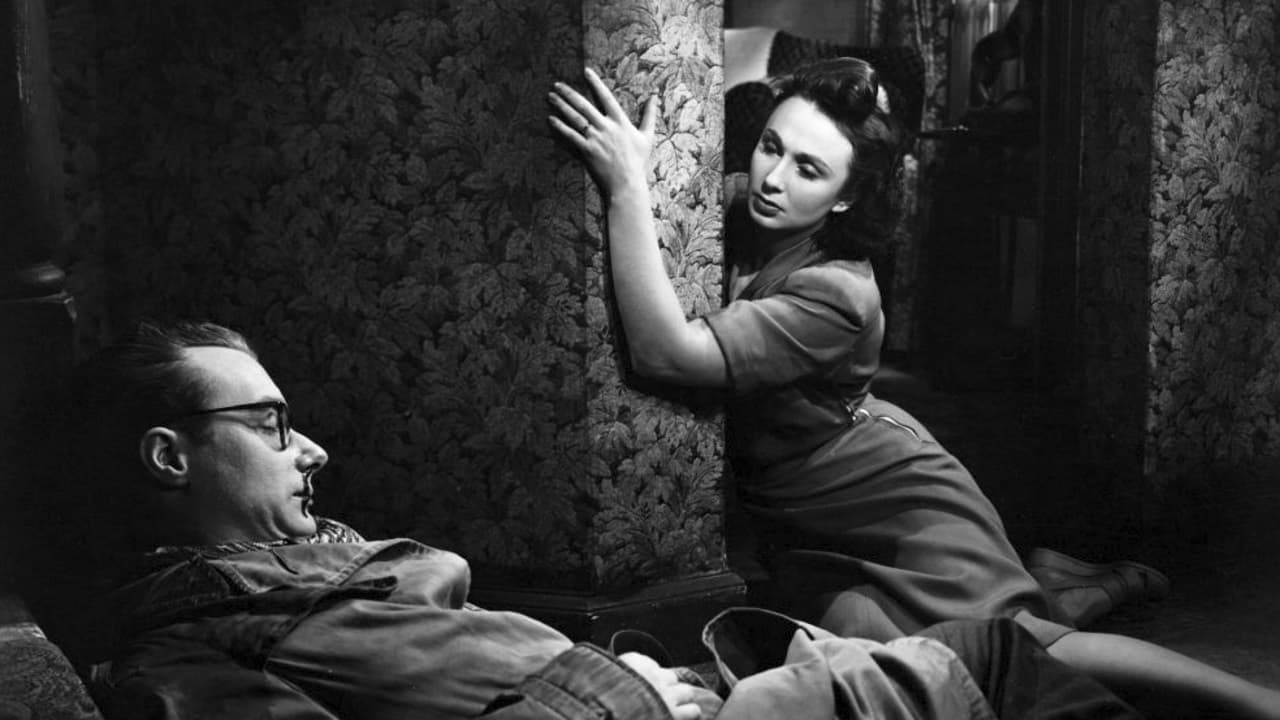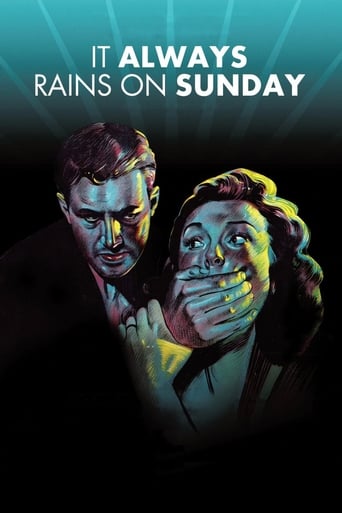



What makes it different from others?
To me, this movie is perfection.
Charming and brutal
brilliant actors, brilliant editing
I watched this film when it was first released at my local cinema in Hackney. It was the first film that I had ever seen which showed an East End which I could recognise as the one I knew. All the characters were recognisable and true to life. One caveat thought, we see the husband having a hipbath in his kitchen (true to life), but I did wonder where all the hot water came from.certainly not from the tap!, Although I grew up in Hackney, within walking distance, all my immediate family came from there and, as I discovered later,many generations earlier too. Very much a Jewish East End too. This sounds like a cliche, but most of my best school friends were Jewish boys (NEVER jewboys which was pejorative ). It was a delight to see it again, I must search around to find a good copy on DVD. I lovely film which took me back seventy years or more to my boyhood.
View More"London Live" t.v. channel no 8 are currently showing a season of Ealing Films and not just the well known comedies for which they were better known.I had obviously seen these comedies but on 1st June 2015 I saw "It Always Rains on Sunday" (1947) for the first time.I was familiar with Googie Withers from the time of her support role to Margaret Lockwood in the Hitchcock film "The Lady Vanishes" (1938).Talking of this great director one James Hitchcock has given a definitive user review dated 7/9/05 (first above) which satisfactorily explains the plot and other production values for which I commended him.Yes the film set rain machine was very much in evidence to add verisimilitude to the film title.A few reviewers from foreign parts I notice had an understandable problem with the London vernacular accents but it was obviously produced with the home market in mind as were many American movies.Being a 69 year old Londoner myself I understood all the East End dialogue, having worked in Stratford near Bethnal Green myself.In line with IMDb.com general average I rated it 7/10.
View MoreEaling Studios were, of course, best known for comedies, and Robert Hamer was possibly best known as the director one of the best of those, "Kind Hearts and Coronets". "It Always Rains on Sunday", however, is not a comedy but a crime drama, an example of the studio's more serious output. The action is set in Bethnal Green, a working class district of East London, in the years following the end of the Second World War. (In the forties the British cinema, which had hitherto concentrated on the lives of the well-to-do, began to make more films about working class life, foreshadowing the "kitchen sink realism" of the late fifties and sixties). Tommy Swann, an armed robber, escapes from Dartmoor Prison and makes his way back to London where he hides in the home of his former fiancée, Rose Sandigate, hoping to escape abroad by stowing away on a ship. Although Rose is now married to another man, she still loves Tommy and shelters him in the house.In visual terms the film, with its strong contrasts of light and dark and its frequent shots of rain-swept streets, seems to have been influenced by the contemporary American film noir style. (Hamer was obviously keen on the rainy look- so keen, in fact, that we sometimes see rain, presumably courtesy of a hosepipe, falling from bright sunlit skies). This is particularly apparent during the gripping chase scenes near the end, when Swann attempts to hide from the police in a railway marshalling yard. In terms of content, however, the film differs from most films noirs, which normally had at their centre a single strong male character, who could be on either the wrong or the right side of the law but was generally a loner. Swann might fit that description, but the film is not really about him but about Rose and her family, and also about the wider community of which they are a part.There are some memorable characters, both within the Sandigate family and without. Besides Rose, the family consists of her stolid, easygoing husband George, a man whose life revolves around his pipe, his newspaper, his pint of beer and the local pub darts team, their cheeky young son Alfie, and George's two attractive teenage daughters from an earlier marriage. These two are very different in character. Vi, the elder, is rebellious, promiscuous and the current mistress of Morrie Hyams, a shopkeeper of dubious character who also acts as bandleader at the local dance-hall. Doris, the more docile, placid younger daughter, is being pursued by Morrie's equally dubious brother Lou, a bookmaker, but prefers her steady boyfriend Ted.We tend today to look back on the late forties as a time of post-way austerity and hardship, particularly in working class areas, but apart from a few shots of bomb-damaged buildings and references to the rationing system there is little of that to be seen here. The action all takes place on one single Sunday (probably in Autumn), and we see the East End at play rather than at work, with the local people enjoying themselves in the pub, at a street market, at the dance-hall and at an open-air boxing match (a chance for Lou Hyams to make some money by fixing the result).Despite this emphasis on fun and relaxation, however, the people we see are not the stereotyped lovable cheerful Cockneys familiar from many British films. Besides the more serious villainy of Swann and his like, there is also a considerable amount of petty crime, often used as a source of comic relief. There is a comic subplot about three minor-league villains who have stolen a lorry-load of roller-skates and are trying to find a fence who will dispose of them; the man they find is a sanctimonious hypocrite who objects to boys playing the mouth-organ on the Sabbath but has no objection to dealing in stolen goods. The dodgy Hyams brothers are also a source of humour, especially Morrie who, for all his flashy pretensions, is an essentially ludicrous character, caught between the demands of the sluttish Vi and his long-suffering wife Sadie. (The brothers have cut themselves off from their traditional Jewish family, who disapprove of their dishonest dealings, although it is noteworthy that Morrie still claims the right, as a Jew, to open his shop on Sunday, something that in the forties would have been forbidden to Gentiles).The main thrust of the film, however, is not humorous but serious. Rose (very well played by Googie Withers) is a tragic heroine. Her tragedy is that the man she loves is a violent rogue, who does not love her but makes use of her when it is in his interests, and that she cannot love her husband who is a decent, kindly man and treats her well. The film is a mixture of tragedy, thrills, documentary social realism and occasional humour. Although the film has not become recognised as a classic of the British cinema, unlike most of the Ealing Comedies or other crime dramas to the period, such as "The Blue Lamp", my view is that it deserves to be better remembered. 8/10
View MoreThis film portrays the post-war East End atmosphere like few other films. Its characters appear to be typical East End characters - the frustrated housewife, adventurous schoolboy, local spiv, small-time gangsters, Jack Warner as the archetypical detective, patrician father-figure - just a few of the memorable characters whose lives intertwine on a bleak, rainy Sunday afternoon in London. There is more to these characters than meets the eye, as the plot unravels.A note on the music: a cheery theme that is repeated throughout the film, as the setting returns to the Sandigates' terraced house, apparently called "Theme without Words": as so often with Ealing films, it adds to the setting a very fitting background.
View More